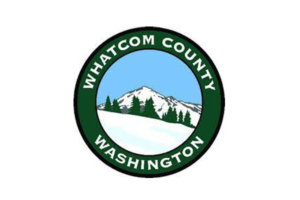In a previous blog post, we reviewed the purpose and power of a food business feasibility study. In this follow-up, we will explore what to expect once you embark on the journey– the important role you play, building expectations for a reasonable timeline, how to engage the community, and the importance of championing your business idea. By understanding these aspects, you can make the feasibility study process easier and more successful.
Building Time for the Study
While a consultant with expertise leads the process, the feasibility study’s success is contingent on the involvement and leadership of a dedicated study team. The study team should include individuals invested in the study’s outcome with knowledge of the local landscape, as they will be called upon for their input and to make connections with stakeholders.
New Venture Advisors’ kickoff process starts with a review of the study team’s role in the process. One of our biggest hurdles in moving the study forward is organizations or small businesses that have not designated staff time for the project. If you are planning a feasibility study, a point of contact should expect to spend an average of 3 hours a week supporting the consultant.
A Reasonable Timeline
Understanding the timeline for your feasibility study is crucial to plan and manage the process effectively. This timeline will vary depending on your study’s specific details and requirements, but on average, a thorough feasibility study takes 6 to 9 months. There are a few key milestones to consider.
The first time block is for research and data collection. This may involve analyzing market trends, evaluating existing local food infrastructure, and conducting surveys or interviews with various stakeholder groups. Next, there will be a period for analyzing and evaluating the data collected, identifying gaps, and developing strategies to address them.
Finally, you’ll need to allow time to build operating models and make decisions. This usually involves time for presenting findings to stakeholder groups for input and making informed decisions about the next steps for your venture.
Engaging the Community
Engaging the community is crucial in the food business feasibility study process. Your success as a food business depends on understanding and meeting the needs of your target market, and who better to provide insights and feedback than the local community? Engaging the community helps you gather valuable information and creates buy-in for your vision.
To effectively engage the community, identify interested people such as local farmers, food business entrepreneurs, and service organizations. Reach out to them through surveys, interviews, or focus groups to gather their opinions, preferences, and concerns regarding your food business idea. This will provide valuable insights, build relationships, and establish a network of potential partners.
Additionally, involving the community in food system planning can help identify gaps in the local food infrastructure and develop strategies to address them. Working together can create a more sustainable and resilient food system that benefits everyone involved.
Remember, community engagement is an ongoing process. Continue to involve the community in decision-making and inform them about your progress. By doing so, you will generate excitement and allow people to see how they will fit into the project.
Being a Champion: Inspiring Confidence in Your Vision
As you navigate the process of conducting a food business feasibility study, it’s essential to champion your vision. Your passion and confidence in your idea can inspire others and garner support for your business venture.
One way to inspire confidence in your vision is by clearly articulating your goals and objectives. Share your vision by articulating why your food business is unique and how it will address needs in the market. Be prepared to answer questions and address any concerns that may arise.
Remember, being a champion for your vision means staying resilient in the face of challenges. Be prepared for setbacks and obstacles along the way. Your unwavering belief in your vision will inspire others to support you and help turn your food business dreams into a reality.
Ready for a feasibility study? The team of experts at New Venture Advisors is ready to partner with you!
Photo courtesy of Rawpixel via iStock



